.
There was a little turtle.
He lived in a box.
He swam in a puddle.
He climbed on the rocks.
He snapped at a mosquito.
He snapped at a flea.
He snapped at a minnow.
And he snapped at me.
He caught the mosquito.
He caught the flea.
He caught the minnow.
But he didn't catch me.
Vachel Lindsay (1879-1931): The Little Turtle: A Recitation for Martha Wakefield, Three Years Old, from The Golden Whales of California and Other Rhymes in the American Language, 1920
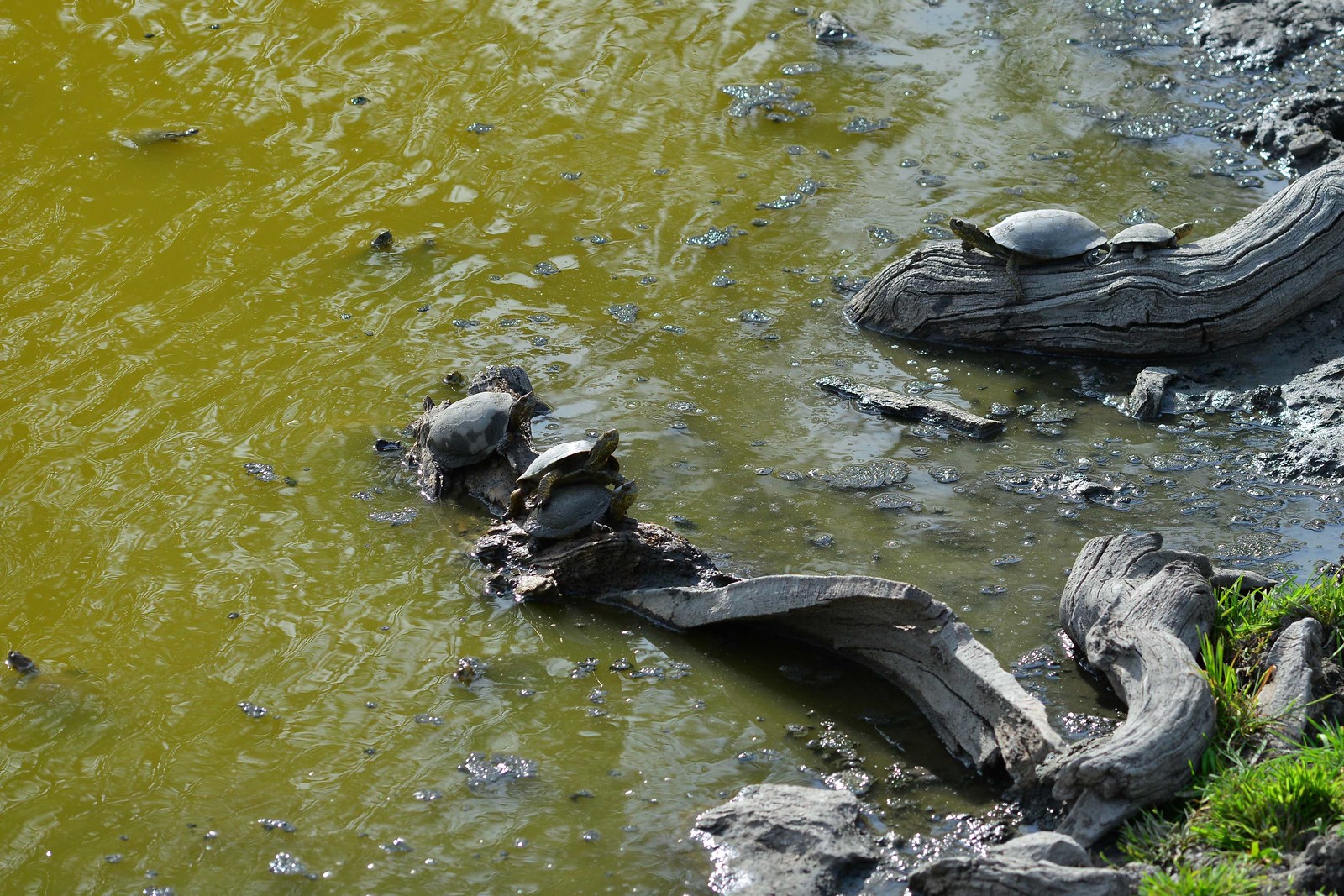
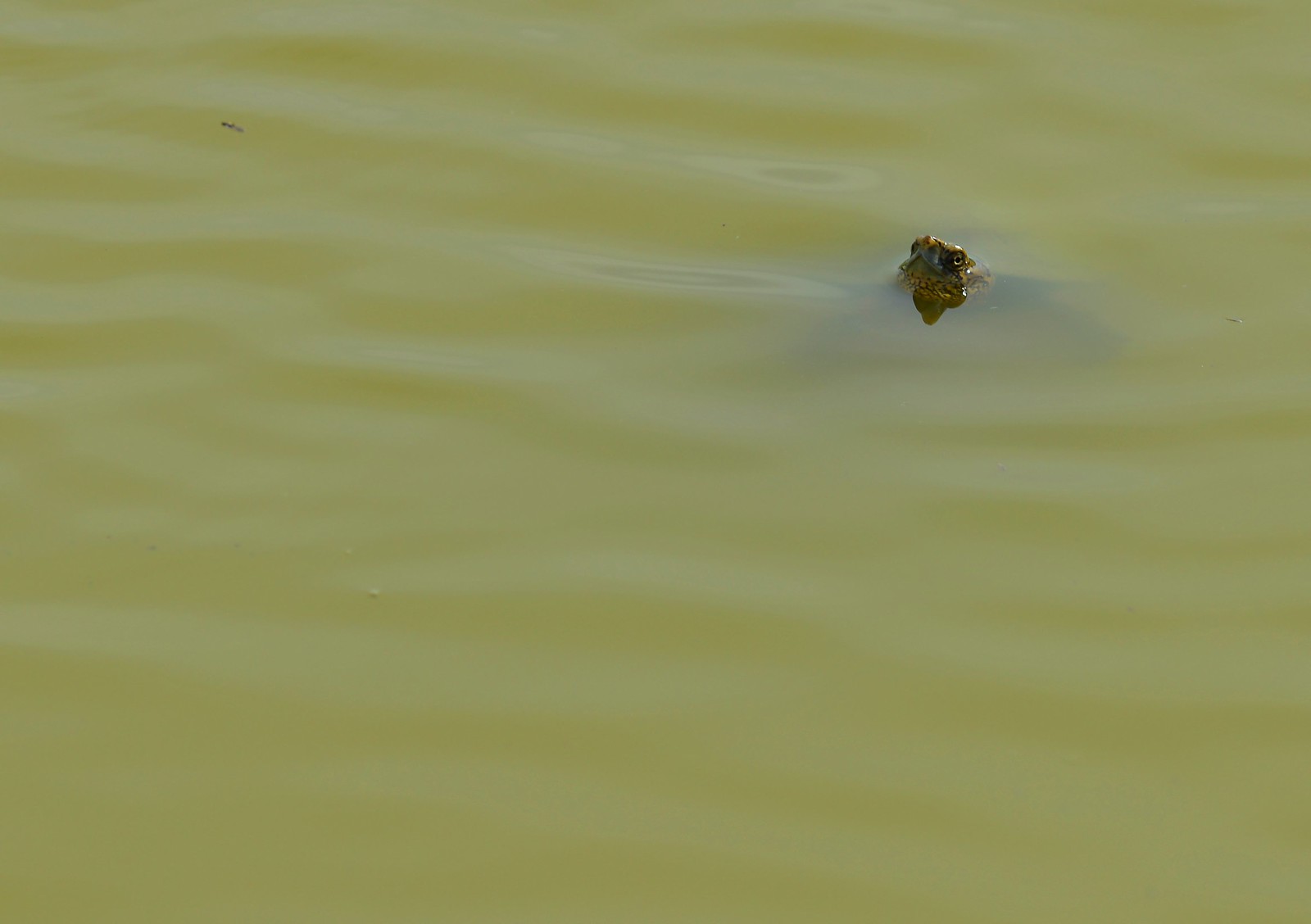
Western Pond Turtle, Alameda, California: photo by orientalizing, 18 April 2014
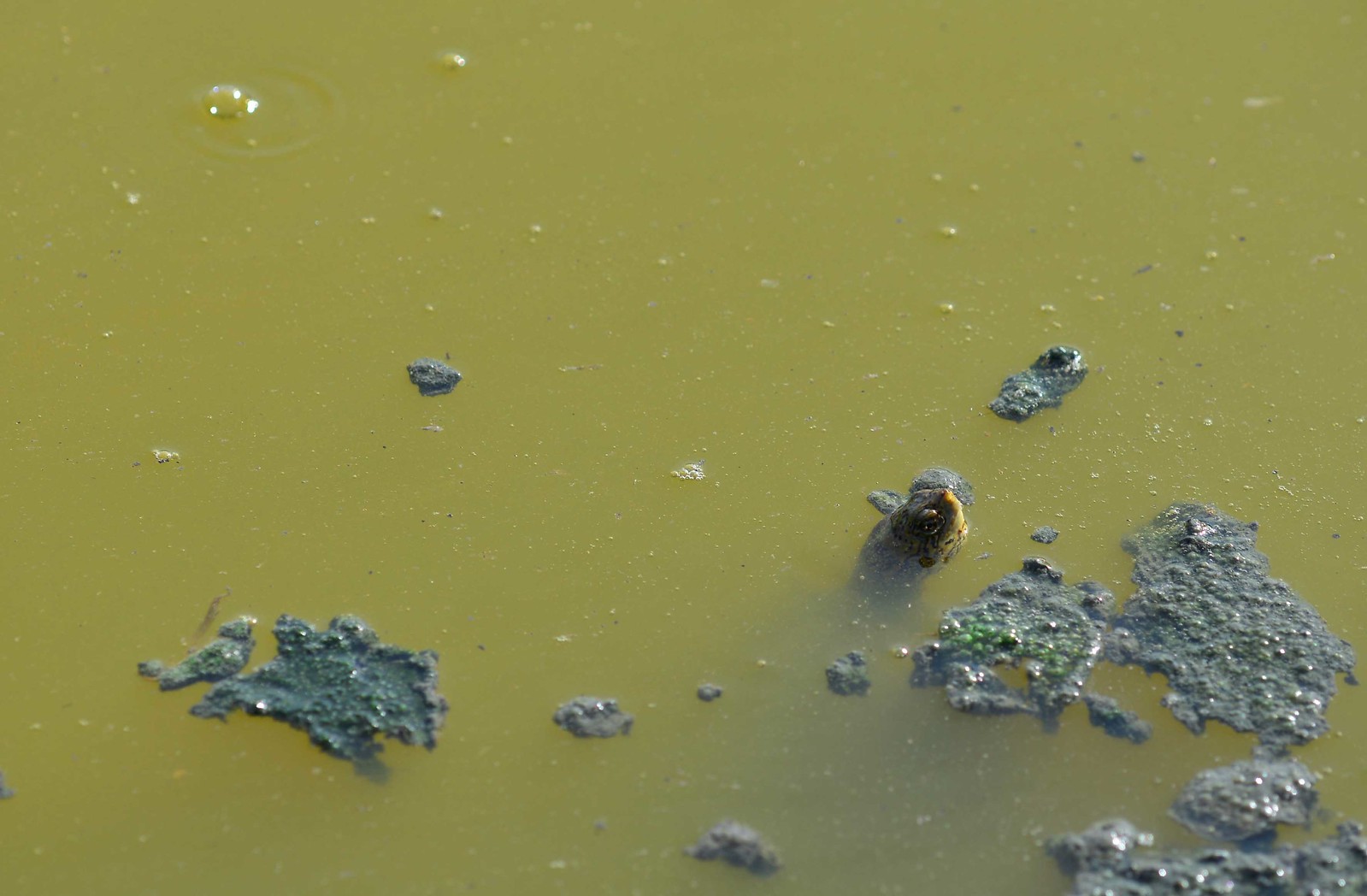
Western Pond Turtle, Alameda, California: photo by orientalizing, 18 April 2014
Don’t touch the turtles! Misguided ‘rescuers’ relocating reptiles: Peter Fimrite, San Francisco Chronicle, 1 June 2015
Western pond turtles have been subjected to many indignities over the
years, but the latest threat to the sad-eyed reptiles comes from a
surprising source -- rampaging do-gooders.
Wildlife biologists say would-be good Samaritans have
been snatching native turtles around California this spring in
ill-conceived attempts to save them from doing the kinds of things
turtles do.

A western pond turtle climbs out of Jewel Lake onto a log at Tilden Park in Berkeley, Calif. on Wednesday, May 13, 2015. State fish and wildlife officials are urging people to leave turtles alone if they see one in dry terrain as they could simply be en route to nesting areas away from ponds or creeks and not in distress: photo by William Chinn / San Francisco Chronicle, 1 June 2015
Wildlife rehabilitation centers and animal shelters
have complained that people have been bringing healthy Western pond
turtles to their sites. The good-hearted but ill-informed folk have
wrongly perceived distress as the turtles have waddled out of water,
ambled up hillsides, moseyed about through grasslands or simply looked
off into space with what appeared to be a needy gaze, said Laura
Patterson, a senior environmental scientist for the California
Department of Fish and Wildlife.

Western pond turtles line up on a log at Tilden Park's Jewel Lake in Berkeley, Calif. on Wednesday, May 13, 2015. State fish and wildlife officials are urging people to leave turtles alone if they see one in dry terrain as they could simply be en route to nesting areas away from ponds or creeks and not in distress: photo by William Chinn / San Francisco Chronicle, 1 June 2015
“They think they are either lost pets or they are
confused, I guess, or in a place that they shouldn’t be, so they are
taking them often to dog and cat animal shelters, where a lot of times
workers don’t even know what they have,” said Patterson, the
department’s statewide amphibian and reptile conservation coordinator.
“I’m sure it happens a lot. Statewide it is probably in the hundreds.”

Western pond turtles rest on a log at Tilden Park's Jewel Lake in Berkeley, Calif. on Wednesday, May 13, 2015. State fish and wildlife officials are urging people to leave turtles alone if they see one in dry terrain as they could simply be en route to nesting areas away from ponds or creeks and not in distress: photo by William Chinn / San Francisco Chronicle, 1 June 2015
Pond turtles are certainly partial to water, she
said, but the olive brown creatures have been known to gallivant about
on land, too. Spring is nesting season, and many pregnant females are
venturing out from their aquatic habitats in search of cozy substratum
to lay eggs. Pond turtles sometimes wander as far as 500 yards away from
water to deposit their offspring, which they promptly leave to their
own devices. They have been spotted prowling the highlands as far as a
mile away from their native streams.

Western pond turtles bask on a log at Tilden Park's Jewel Lake in Berkeley, Calif. on Wednesday, May 13, 2015. State fish and wildlife officials are urging people to leave turtles alone if they see one in dry terrain as they could simply be en route to nesting areas away from ponds or creeks and not in distress: photo by William Chinn / San Francisco Chronicle, 1 June 2015
Moving upland earlier
Experts say scarce water caused by the worst drought
in recent California history has also caused more turtles to move upland
earlier in the season to “estivate,” or go into summer dormancy.
Patterson said the reptiles have evolved in a way that allows them to go
into a kind of suspended animation for long periods when there is no
food or water. The turtles sometimes bury themselves during hard times
to wait things out.
The Western pond turtle, which generally reaches a
maximum length of 7½ inches, is California’s only native freshwater
species of turtle. They were once abundant in Bay Area wetlands, creeks
and sloughs, and much of their Bay Area habitat has been filled in,
destroyed or overrun by invasive species over the decades.
The pond turtle population has gone down everywhere,
but the decline has been particularly precipitous in Southern California
because of habitat loss, predation, competition and diseases from
nonnative species.
The
species’ primary turtle nemesis is the larger, more colorful red-eared
slider, an alien species from the East that is commonly sold in pet
stores. Unfortunately, sliders are often dumped in local ponds and
outcompete the drab-looking brownish pond turtles for food.
Sliders, which have yellow-and-green striped shells
and telltale red markings on their heads, have contributed to huge
declines in pond turtle populations, including some localized extinctions, according to biologists.
Western pond turtles are listed as a “species of
special concern” in California, “critical” in Oregon and “endangered” in
Washington. The U.S. Fish and Wildlife Service announced in April that
the species may warrant protection under the federal Endangered Species
Act.

A western pond turtles swims in Jewel Lake at Tilden Park in Berkeley, Calif. on Wednesday, May 13, 2015. State fish and wildlife officials are urging people to leave turtles alone if they see one in dry terrain as they could simply be en route to nesting areas away from ponds or creeks and not in distress: photo by William Chinn / San Francisco Chronicle, 1 June 2015
Strict conditions of release
It is illegal to capture, collect, possess, purchase,
propagate, sell or transport native reptiles or amphibians in
California. The recent terrapin expropriations are also a problem
because animal shelters and wildlife rescue centers are not allowed to
release captive turtles without a clear understanding of how and where
they were captured.
“They can only release them under strict conditions
near where they were taken from the wild,” Patterson said. “We are very
careful ... because of concerns about disease transmission and genetic
mixing. So when people just drop them off and we don’t know where they
came from, we may not want to risk releasing them back into the wild. To
me, that’s the tragedy of this.”
The Department of Fish and Wildlife is urging
tenderhearted nature lovers to stay away from the slow-moving reptiles
unless the animal’s shell is cracked or it is obviously injured.
Patterson said it is probably OK to move a turtle off a roadway or out
of harm’s way, but nobody should ever take one home.
“It’s well-meaning but very counterproductive
behavior,” she said. “We just want people to know that the best thing to
do is leave them alone.”
Western pond turtle
Scientific name: Clemmys marmorata
Status: Species of concern in California
Length: Up to 7½ inches
Weight: Varies

Western pond turtles line up on a log at Tilden Park's Jewel Lake in Berkeley, Calif. on Wednesday, May 13, 2015. State fish and wildlife officials are urging people to leave turtles alone if they see one in dry terrain as they could simply be en route to nesting areas away from ponds or creeks and not in distress: photo by William Chinn / San Francisco Chronicle, 1 June 2015
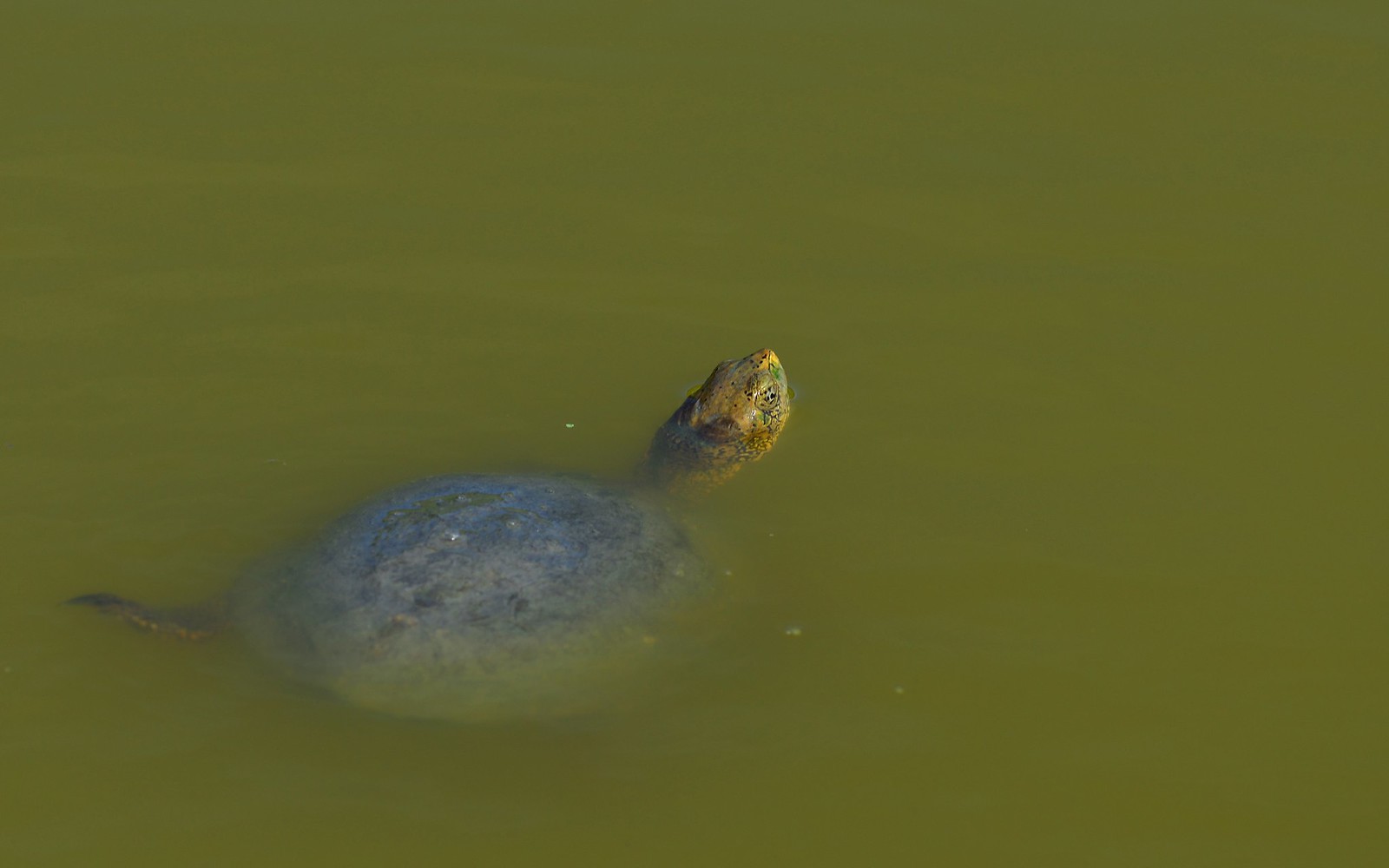
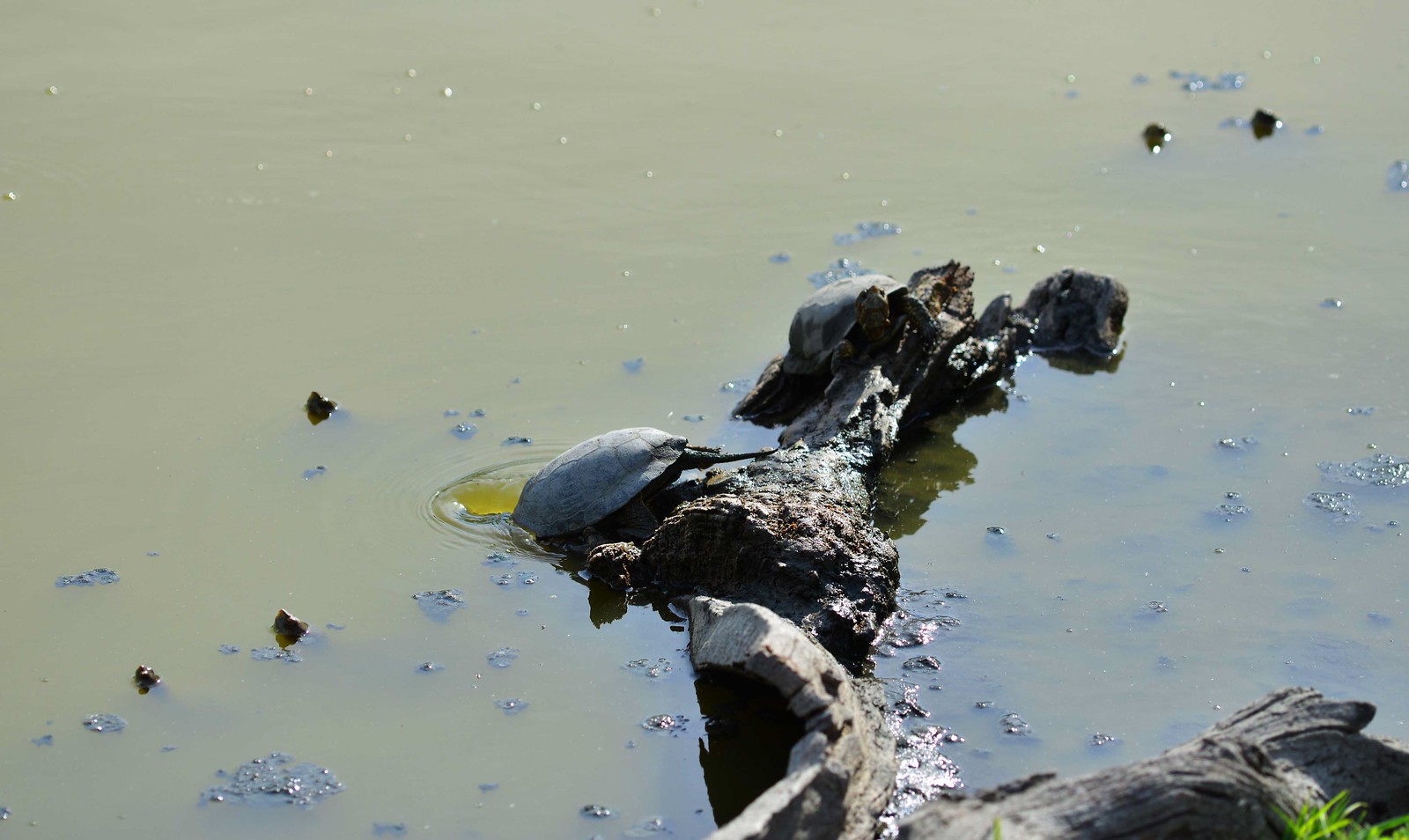



1 comment:
Former British Poet Laureate Andrew Motion Recites "The Little Turtle"
Post a Comment